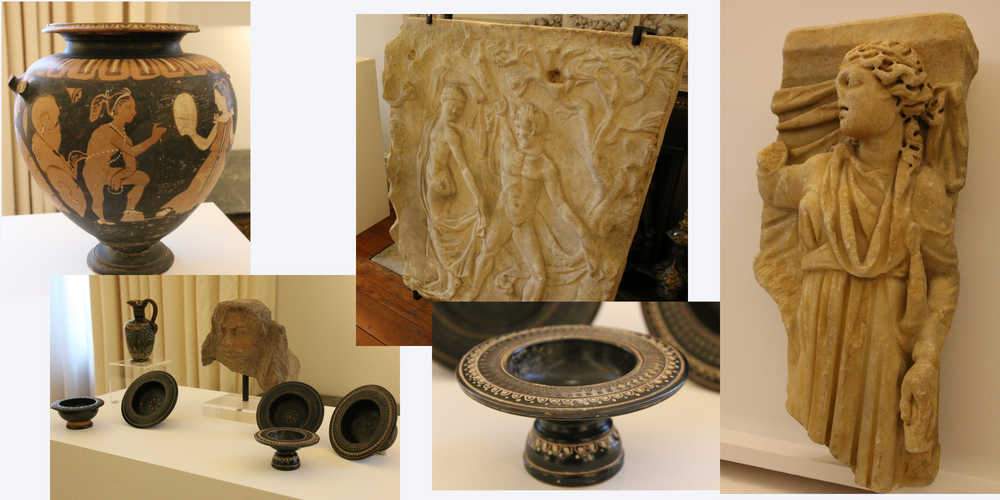With 371 votes in favor, none against and three abstentions, day before yesterday, Jan. 12, the Chamber of Deputies approved the bill to Ratify and Execute the Nicosia Convention, which is the Council of Europe Convention on offenses related to cultural property, signed in Nicosia, Cyprus, on May 19, 2017. Italy has thus ratified the Nicosia Convention: this is an important document that aims to combat the illicit trafficking of cultural property, which involves states such as Italy and Greece at the forefront, and has a significant impact both from the point of view of the damage that such property suffers and from the economic point of view.
The Convention will replace the previous Delphi Convention, which dates back to June 1985 but never entered into force because it did not reach the required number of ratifications (it was ratified by only six countries, including Italy: three more were needed for entry into force). Currently, the Nicosia Convention has been signed by 13 states (Armenia, Cyprus, Greece, Italy, Latvia, Mexico, Montenegro, Portugal, Russia, San Marino, Slovenia, Ukraine, Hungary) and ratified by only five: the first country was Cyprus in 2017, followed by Mexico (2018), Greece and Hungary (2021), and finally Italy. The Convention is open to all states in the world.
The Delphi Understanding was based on the concept of common responsibility and solidarity in the protection of European cultural heritage, and aimed to protect cultural heritage against criminal activities, committing the parties to raise public awareness of the need for the protection of cultural property, to cooperate in the prevention of crimes against cultural property, to recognize the seriousness of such offenses, and to apply appropriate penalties or cooperate in the recovery of stolen cultural property. The Nicosia Convention was designed with an expanded perspective, as it was prepared within the Council of Europe but with the cooperation of numerous international organizations such as the European Union, the International Institute for the Unification of Private Law (UNIDROIT), UNESCO and the United Nations Office on Drug Control and Crime Prevention (UNOD), and is then aimed at preventing and combating illicit trafficking and destruction of cultural property, as part of the organization’s efforts to combat terrorism and organized crime.
The Nicosia Agreement also aims to promote national and international cooperation in the fight against crimes involving cultural property, establishing several criminal offenses, including theft (Article 3), illegal excavations and removals (Article 4), illegal importation (Article 5), illegal exportation (6), acquisition of stolen movable property (Article 7), and marketing, i.e., placing on the market, of stolen property (Article 8). The convention text also recognizes as crimes the falsification and alteration of documents relating to movable cultural property (Article 9) and the intentional destruction or damage of cultural property (Article 10). Conspiracy is also recognized as a crime (Article 11). Aggravating factors are also established, of four cases: if the crime is committed by persons abusing the trust placed in them as professionals, if it is committed by public officials in charge of the preservation or protection of cultural property, if it is committed within the framework of a criminal organization, and if the perpetrator has a record for the same crimes.
In addition, the Convention stipulates that each party shall establish or develop databases of its cultural property, introduce import and export control procedures, introduce due diligence provisions for dealers in art and antiquities, auction houses and others involved in the trade of cultural property, establish a central national authority (or authorize existing authorities) to coordinate activities related to the protection of cultural property, promote awareness campaigns, ensure that museums do not acquire cultural property of illicit origin and provide information and training to relevant officials to prevent cultural property crimes, prevent free ports from being used for trafficking cultural property, and encourage internet service providers and web sellers to cooperate to prevent trafficking in cultural property.
“The ratification by unanimous vote by the Chamber of Deputies of the Nicosia Convention is excellent news, which reaffirms the central role of culture for the country,” says Culture Minister Dario Franceschini. “In recent years, in fact, Parliament has always spoken in agreement on all major issues concerning the protection and preservation of cultural heritage, thus demonstrating how much it is a constituent part of our identity and a factor of unity between the different political parties. I now hope that the process of the bill on the toughening of penalties for crimes against cultural heritage, currently under parliamentary consideration, will also soon reach a proper conclusion.”
 |
| Illicit trafficking of cultural property, Italy ratifies Nicosia Convention |
Warning: the translation into English of the original Italian article was created using automatic tools. We undertake to review all articles, but we do not guarantee the total absence of inaccuracies in the translation due to the program. You can find the original by clicking on the ITA button. If you find any mistake,please contact us.